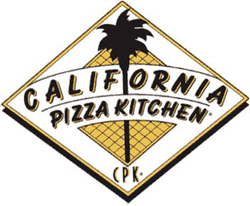 One restaurant that is making gluten-free a top priority!
One restaurant that is making gluten-free a top priority! To keep this blog from turning into a novel, I will focus on one industry in particular: the pizza parlor.
I came across an article in the Los Angeles Times about how pizza parlors in LA are making it safe for people to eat gluten-free. (Read the entire article here).
Worried about false claims made for advertising sake, I decided to call up a few pizza parlors to see how they would answer my questions. I wanted to know three things:
- Do you offer gluten-free pizza?
- How do you make sure it does not cross-contaminate during preparation?
- Do you bake it in the same oven as other, gluten pizza?
First, I called my local pizzeria, where I recently saw "gluten-free" advertised on their outdoor sign.
(NOTE: I will not disclose the name of the establishment for fear of some sort of lawsuit, defamation, etc. If you are local, email me and we can talk about it!)
I asked my three questions. 1- Yes, they have gluten-free dough that is made elsewhere and arrives frozen. 2- They cannot protect from cross-contamination, because actually, they use regular flour on the table when they are topping the pizza. 3- They bake it in the same oven, with no pan or other instrument used to protect from where traditional pizza is made.
AAAHHHH!!!! This drove me absolutely bonkers!!!
Second call- to the California Pizza Kitchen in Los Angeles and Philadelphia.
1- Yes, and they have many many options other than dough. 2- I received an extremely long explanation about the separation process, with sealed containers of ingredients, specially marked boxes, and separate prepping tables. 3- They use the same oven, but a special spot designated for the gluten-free pizzas, that go in a special tray in that section to prevent cross-contamination.
YAY! This is what I like to hear!
Third call was to a pizzeria in Massachusetts, with online claims of gluten-free pizza.
1- Yes, they make the dough themselves. 2- Sort of. They have gluten-free flour, but they use the same containers for toppings as they do on the other pizzas, and they have never checked their sausage for wheat filler before. 3- No, they use the same oven, without a barrier.
Well, they are trying, but there is definitely room for improvement!
Bottom line... just because an establishment makes "gluten-free" claims, it does NOT mean that they have gluten-free practices. Always be diligent in your search for the truth for safe and happy eating!
For more information on Celiac disease, there are incredible resources The Celiac Foundation website.

 RSS Feed
RSS Feed